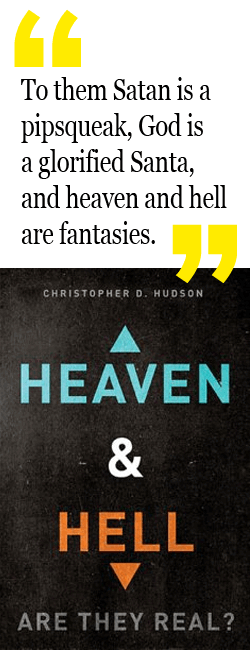Whenever the idea of Christian vocation is addressed in an article or conversation, there’s a well-known quote attributed to Frederick Buechner that inevitably comes up: “Vocation happens when our deep gladness meets the world’s deep need.”
Actually, according to Beuchner himself, it’s not a direct quote, as he explained in an interview. But it captures the essence of what he was getting at.
As Christians, imbued with God’s image, we all want to know why we’re here. What we’re supposed to be about. For what purpose did God create us?
And we tend to spend a lifetime seeking “the” answer to that question.
In the meantime, we live and move and have our being, going about our days, doing our best to please God and enjoy Him for now and here, longing for over there.
This we call our Christian walk.
In the process of living our lives in the light of God’s Word, we seek to be better people. To be Spirit-filled, God-shaped, Christ-redeemed creations.
We care about those around us. Go to work and do our jobs as well as we can. Give money to those in need. Do acts of service. Treat people well. Grow where we are planted.
As we do these things, our vocation and purpose takes shape through our humble, clumsy service to God.
Perhaps we even recognize that our “purpose” is not singular, but rather a series of purposes, a multiple of callings. All, of course, anchored in Christ connected by His will flowing through us.
From time to time, our thoughts turn to heaven. “What’s that going to be like?” we wonder.
Honestly, I’m not sure Christianity has done a good job of revealing what heaven and the new earth will be like.
What it won’t be like is how it is cartoonishly characterized, us sitting on a cloud wearing a halo and wings, strumming a harp. Although there are people who believe that’s the case.
While elements of this false image can be found in scripture, the Bible never describes such a scene.
The Bible does, however, in short, reference a new heaven and a new earth, our reigning with Christ, streets, cities, dwellings, all implying activity.
Frankly, I’m really hoping there will be books as I’m thinking there’s going to be a lot of time to catch up on my reading!
“But,” you object, “reading implies inquisitiveness and when we’re in heaven all our questions will be answered!”
Maybe. Maybe not. I’m not sure if we’re going to know all we want to know all at once.
If our inquisitiveness and appreciation of literature, art, music, and all the fun things of life will be of no use, why did God so firmly implant them in us to begin with?
Last year I read a really great book, Total Truth: Liberating Christianity from Its Cultural Captivity by Nancy Pearcey. I strongly recommend the book to everyone.
In it, on the topic of Christian vocation, Pearcey states, “In our work we not only participate in God’s providential activity today, we also foreshadow the tasks we will take up in cultivating a new earth at the end of time.”
As Spock would say, Fascinating!
This means we’re going to have stuff to do over there on the other side. Stuff for which we are perfectly suited, that fits to a T our created personalities, that extends our unique gifitings into eternity!
Wowza! That sounds, well, darn fun!
And how we live now, all we do here on earth in this short time we have prepares and shapes us for the rest of our eternal lives.
Holy vocational education!
Going back to Buechner, he explained, “When you are doing what you are happiest doing, it must also be something that not only makes you happy but that the world needs to have done. In other words, if what makes you happy is going out and living it up and spending all your money on wine, women, and song, the world doesn’t need that.”
This helps sift down the possibilities for us in terms of what we’re made for. Wanton carousing isn’t something this earth or the new earth needs.
The Westminster Shorter Catechism says, “Man’s chief end is to glorify God, and to enjoy him forever.”
In this we find further guidance when it comes to vocation as well.
We seek to do that which pleases God, serves Him and provides us a sense of enjoyment -- joy, satisfaction, contentment -- in the process.
Add in the context of Luke 10:25-37, where an expert in the law correctly explains the path to eternal life is found when we “Love the Lord your God with all your heart, with all your soul, with all your strength, and with all your mind; and your neighbor as yourself,” and we also learn that what we do must benefit those around us.
Jesus clarifies this through the telling of the parable of the good Samaritan.
It’s not about us having our fun, doing what we want, living our truth, even if it’s not hurting anyone else.
How we live here on earth, what we do now, does have eternal consequences. For believers, these consequences don’t end at heaven’s gate.
Death for the Christian isn’t an end. It’s a new beginning to a new life and a truly glorious career!
So, how’s your on-the-job training going?
=======
 Does this change how you think of Jeremiah 29:11?:“‘For I know the plans I have for you’—this is the Lord’s declaration—‘plans for your welfare, not for disaster, to give you a future and a hope.’” Do you wonder what life after death will be like? How have you envisioned it? What do you believe you will be doing in heaven? Do you agree or disagree that what we do now is a preparation for what we will do in eternity? Please share your thoughts in the comments!
Does this change how you think of Jeremiah 29:11?:“‘For I know the plans I have for you’—this is the Lord’s declaration—‘plans for your welfare, not for disaster, to give you a future and a hope.’” Do you wonder what life after death will be like? How have you envisioned it? What do you believe you will be doing in heaven? Do you agree or disagree that what we do now is a preparation for what we will do in eternity? Please share your thoughts in the comments!
Read more posts like this at www.FaithBraised.com.


